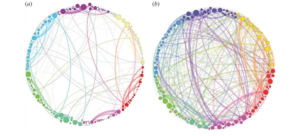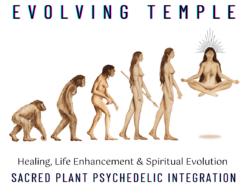In recent years, psilocybin, the active compound in “magic mushrooms,” has garnered significant attention for its potential therapeutic benefits in mental health care, particularly through microdosing. Microdosing involves taking sub-perceptual doses of psilocybin, meaning the dose is low enough not to produce hallucinations but adequate to catalyze positive impact on mental health.
Embarking on a journey with psilocybin microdosing can be both exciting and transformative. This guide is designed to help you understand how microdosing psilocybin can benefit your mental health and provide you with the knowledge needed to navigate this path safely and effectively. By focusing on the individual experience, we aim to equip you with insights into how this therapy can address specific mental health conditions and improve your overall well-being.
When we look at indigenous medicine from various cultures across the globe, there is evidence that magic mushrooms have been used for healing purposes through ancient civilizations. This new era of embracing these naturally occurring fungi in our ecosystem provides us with the opportunity to commence a new era of mental health treatments. By incorporating psilocybin into clinical and therapeutic settings, we can unlock healing potential for certain mental health conditions that once seemed impossible to treat.
With esteemed academic and clinical institutions and clinicians from around the world embracing this promising treatment, we are beginning a new chapter in mental health care, offering hope and healing to those who need it most.
Prevalence of mental health conditions at global scale
Global Burden: As of 2019, approximately 970 million people worldwide were living with a mental disorder. The most common conditions are anxiety and depression, which together account for a significant portion of global mental health issues (World Health Organization).
Lifetime Risk: A comprehensive study involving over 150,000 adults across 29 countries, conducted by Harvard Medical School and the University of Queensland, found that one out of every two people will develop a mental health disorder at some point in their lifetime. This staggering statistic highlights the widespread nature of mental health challenges and the need for effective interventions.
Disability and Mortality: According to the World Health Organization, mental health disorders are a leading cause of disability worldwide, accounting for one in six years lived with disability. Individuals with severe mental health conditions often face a reduced life expectancy, dying 10 to 20 years earlier than the general population due to a combination of factors, including inadequate health care and increased risk of physical health issues.
Economic Impact: The economic consequences of mental health conditions are immense. Productivity losses due to mental health issues far exceed the direct costs of treatment, emphasizing the broader societal impact of these disorders (World Health Organization).
Psilocybin microdosing represents a promising frontier in mental health treatment. As research continues to expand, its potential to transform the lives of millions worldwide becomes increasingly evident. This guide aims to provide a clear understanding of the therapeutic benefits of psilocybin microdosing and the significant impact it could have on global mental health.
WHAT ARE THE MENTAL HEALTH CONDITIONS PSILOCYBIN MICRODOSING CAN HELP WITH?
Depression
Research has shown that psilocybin microdosing can effectively reduce symptoms of major depressive disorder, including cases that are resistant to traditional treatments. Studies from Johns Hopkins Medicine reveal that patients often experience substantial improvements with microdosing protocols, with effects that can be sustained over time.
Anxiety
Psilocybin microdosing has also been found to alleviate anxiety, particularly in individuals with terminal illnesses. It helps reduce existential distress and improve mood, allowing patients to face their conditions with a more positive outlook.
Obsessive-Compulsive Disorder (OCD)
Preliminary research suggests that psilocybin microdosing may help reduce symptoms of OCD. Though more extensive studies are needed, early results are promising and indicate a potential new avenue for treatment.
Addiction
Psilocybin microdosing shows promise in treating various forms of addiction, including alcohol and nicotine dependence. It can help individuals gain new perspectives on their behaviors and motivations, facilitating long-term recovery.
Post-Traumatic Stress Disorder (PTSD)
Emerging evidence suggests that psilocybin microdosing could be beneficial for individuals with PTSD by enabling them to process traumatic memories more effectively, offering a therapeutic path to recovery.
Bipolar Disorder
Emerging research is looking into the potential benefits and risks of psilocybin microdosing for individuals with bipolar disorder. While full doses can sometimes trigger manic episodes, microdosing is being investigated for its ability to stabilize mood without inducing mania.
Attention Deficit Hyperactivity Disorder (ADHD)
Anecdotal evidence and preliminary studies suggest that microdosing psilocybin may help improve focus and reduce impulsivity in individuals with ADHD.
Chronic Pain and Inflammation
Psilocybin’s impact on serotonin receptors may help in modulating pain perception and reducing chronic pain. Research is ongoing to explore its potential benefits in managing conditions like fibromyalgia and chronic migraines.
Alzheimer’s Disease and Dementia
Preliminary studies indicate that psilocybin microdosing may have neuroprotective effects, potentially slowing cognitive decline in neurodegenerative diseases such as Alzheimer’s and other forms of dementia.
Autism Spectrum Disorders
Research is in its infancy, but there is interest in exploring how psilocybin microdosing might help with social anxiety, sensory processing, and repetitive behaviors in individuals with autism.
WHAT IS PSILOCYBIN MICRODOSING?
Psilocybin microdosing involves consuming sub-perceptual amounts of psilocybin. Unlike full doses, which can produce profound and often overwhelming psychedelic experiences, microdoses are much smaller and are intended to subtly enhance cognitive and emotional well-being without inducing hallucinations or significant alterations in consciousness.
What is microdosing?
Microdosing typically refers to taking about 1/10th to 1/20th of a recreational dose of psilocybin. This small amount is usually enough to produce noticeable improvements in mood, creativity, focus, and overall mental health, without causing noticeable changes in perception. The goal of microdosing is to achieve a balance where the benefits are felt without the hallucinogenic effects of a full psychedelic experience.
How is microdosing done?
Preparation: Psilocybin mushrooms need to be carefully dried and measured to ensure consistent dosing. They can be consumed in various forms, including capsules, tea, or mixed into food.
Dosage: A typical microdose ranges from 0.1 to 0.2 grams of dried psilocybin mushrooms. The exact dose can vary depending on individual tolerance and the potency of the specific strain of mushroom used.
Schedule: Microdosing schedules can be tailored to individual needs and preferences. Initially, it is crucial to start by taking psilocybin at regular intervals and observe any mental, emotional, or physical reactions before continuing the treatment. Adjustments can range from more frequent microdoses, such as daily, to other personalized schedules based on how your body and mind respond to the microdosing regimen. Common regular microdosing schedules include taking a dose every other day to every four days to prevent tolerance build-up and maintain effectiveness.
Mental Health Care and Integration: It is necessary to follow the strict guidelines of your mental health care consultant at the initial stage before adjusting to regular intake. After this initial observation period, collaboratively with your mental health care consultant you can adjust the intake schedule to best suit your needs. In order to maximize the healing potential, it is highly recommended to incorporate integration sessions on a regular basis.
Integration: A psilocybin microdosing integration session is a structured approach to incorporating the subtle effects of microdosing into daily life and personal development through a therapeutic reflective conversation conducted by a mental health care practitioner such as Psychedelic Assisted Therapist or Integration Practitioner.
Tracking: Individuals are encouraged to keep a journal to track their doses, effects, and any changes in mood, productivity, or other mental health indicators and reporting to your mental health care consultant. This helps in fine-tuning the dose and schedule to individual needs.
Safety and Legal Considerations
While microdosing is considered to be relatively safe, it is important to approach it responsibly:
Legal Status: Psilocybin is classified as a Schedule I controlled substance in many countries, making it illegal to possess or use. It is essential to be aware of and comply with local laws.
Medical Guidance: Consulting with a healthcare professional before starting a microdosing regimen is advisable, especially for individuals with underlying health conditions or those taking other medications.
POTENTIAL BENEFITS OF PSILOCYBIN MICRODOSING
Cognitive Enhancements
Microdosing psilocybin has been reported to improve various cognitive functions. Users often experience enhanced focus, better problem-solving abilities, and improved mental clarity. These cognitive enhancements can be particularly beneficial for tasks that require sustained attention and creative thinking. Research suggests that psilocybin may promote neuroplasticity, which is the brain’s ability to form new neural connections, thereby enhancing cognitive flexibility and learning.

Resource: Journal of the Royal Society Interface.
This is an infographic illustration of scientifically accurate representation of brain connections. Diagram (a) shows the brain connections at our normal awake state. Diagram (b) shows the brain connections on Psilocybin. This hyper connected state is considered as the increased neuroplasticity where cognitive, subconscious and unconscious transformation takes place.
Emotional and Psychological Benefits
One of the most significant potential benefits of psilocybin microdosing is its impact on emotional and psychological well-being. Users frequently report reductions in symptoms of depression and anxiety. Psilocybin interacts with serotonin receptors in the brain, which play a crucial role in mood regulation. This interaction can lead to improved emotional stability, greater resilience to stress, and an overall sense of well-being. Studies have shown that even low doses of psilocybin can produce significant and lasting improvements in mood and emotional health.
Physical Health Benefits
While the primary focus of psilocybin microdosing is often on mental and emotional health, there are also potential physical health benefits. Users have reported improvements in chronic pain conditions and enhanced physical energy. The anti-inflammatory properties of psilocybin could contribute to these effects, although more research is needed to fully understand the mechanisms involved. Additionally, the improved mood and reduced anxiety associated with microdosing can lead to better overall physical health by reducing stress-related ailments.
Creativity and Productivity Boosts
Many individuals turn to psilocybin microdosing to boost their creativity and productivity. The enhanced cognitive flexibility and mental clarity provided by microdosing can foster creative thinking and innovation. Users often report an increased ability to think outside the box and generate new ideas. Furthermore, the improved focus and motivation can lead to higher productivity levels, making it easier to accomplish tasks and achieve goals. These benefits are particularly valued in creative professions and demanding work environments.
Trauma Recovery
Psilocybin microdosing is an effective tool for trauma recovery when applied with integration. Microdosing can help individuals process and integrate traumatic experiences by promoting emotional resilience and reducing anxiety. The subtle effects of psilocybin allow for a gentle confrontation of traumatic memories without overwhelming the individual. Research suggests that psilocybin can enhance emotional processing and foster a sense of safety and openness, which are crucial for healing from trauma. Working with a trauma-informed mental health professional is crucial in enhancing the benefits of Psilocybin, providing structured support and guidance throughout the recovery process.
Spiritual Insight and Evolution
Another significant benefit of psilocybin microdosing is the potential for spiritual insight and personal evolution. Many users report profound experiences that foster a deeper understanding of themselves and the world around them. Microdosing can enhance one’s sense of connection to nature, the universe, and other people. This heightened sense of interconnectedness often leads to spiritual growth, greater empathy, and a more profound sense of purpose. These experiences can be transformative, encouraging individuals to live more authentically and align their actions with their deeper values and beliefs.
Enhanced Relationships
Psilocybin microdosing can lead to significant improvements in personal relationships. Users often report increased empathy, better communication, and a deeper sense of connection with others. The enhanced emotional stability and reduced anxiety associated with microdosing can help individuals approach relationships with greater patience and understanding. By fostering a more open and compassionate mindset, psilocybin microdosing can help resolve conflicts more effectively and strengthen bonds with family, friends, and partners. These improvements in relational dynamics contribute to overall well-being and social harmony.
Improvement in Academic and Professional Performance
Microdosing psilocybin has also been noted to enhance academic and professional performance. Users frequently experience heightened focus, improved problem-solving skills, and increased creativity, which are beneficial in both academic and work settings. The cognitive enhancements provided by microdosing can lead to better comprehension and retention of information, making learning more efficient. In professional environments, the increased productivity and motivation fostered by microdosing can result in higher quality work and greater innovation. Additionally, the stress-reducing effects of psilocybin help individuals manage workplace pressures more effectively, contributing to a more balanced and successful professional life.
Psilocybin microdosing offers promising benefits for cognitive enhancement, emotional well-being, creativity, productivity, trauma recovery, and spiritual growth. However, it is crucial to approach this practice responsibly and with an open mind. Regularly evaluate your experiences and make adjustments as needed to optimize the benefits while minimizing risks.
Remember, the journey with psilocybin microdosing is highly personal and unique to each individual. What works for one person may not work for another, so it’s essential to tailor your approach to your specific needs and circumstances. By staying informed, seeking professional guidance, and maintaining a mindful and reflective attitude, you can make the most of your microdosing experience and achieve meaningful personal growth and healing.
We wish you all the best on your journey towards improved mental health and well-being. May your exploration with Psilocybin microdosing be both enlightening and transformative.
Commence your psilocybin microdosing treatment today with Evolving Temple by completing this treatment pre-screening questionnaire to explore your availability. One of our team members will get back to you with further details.

